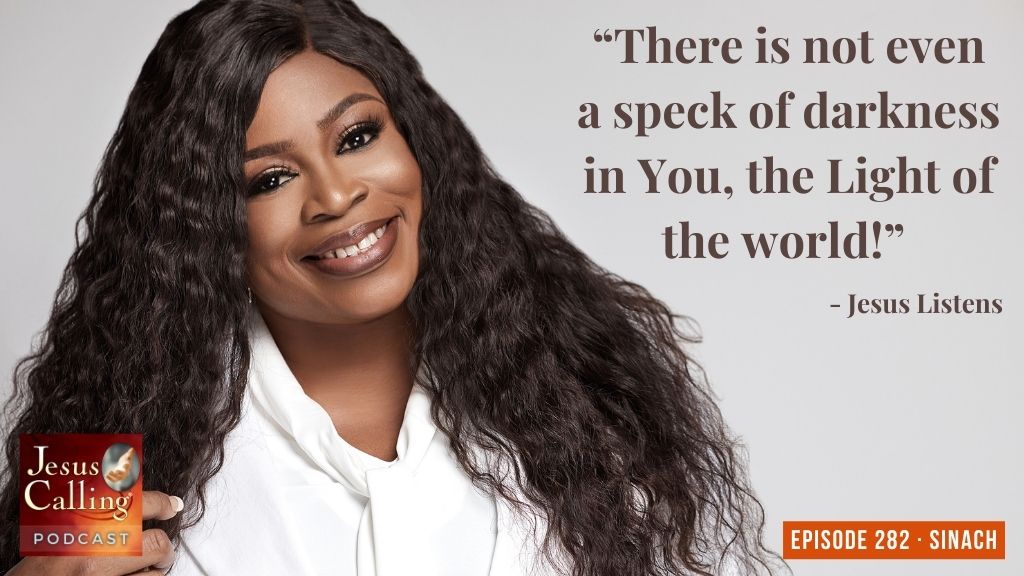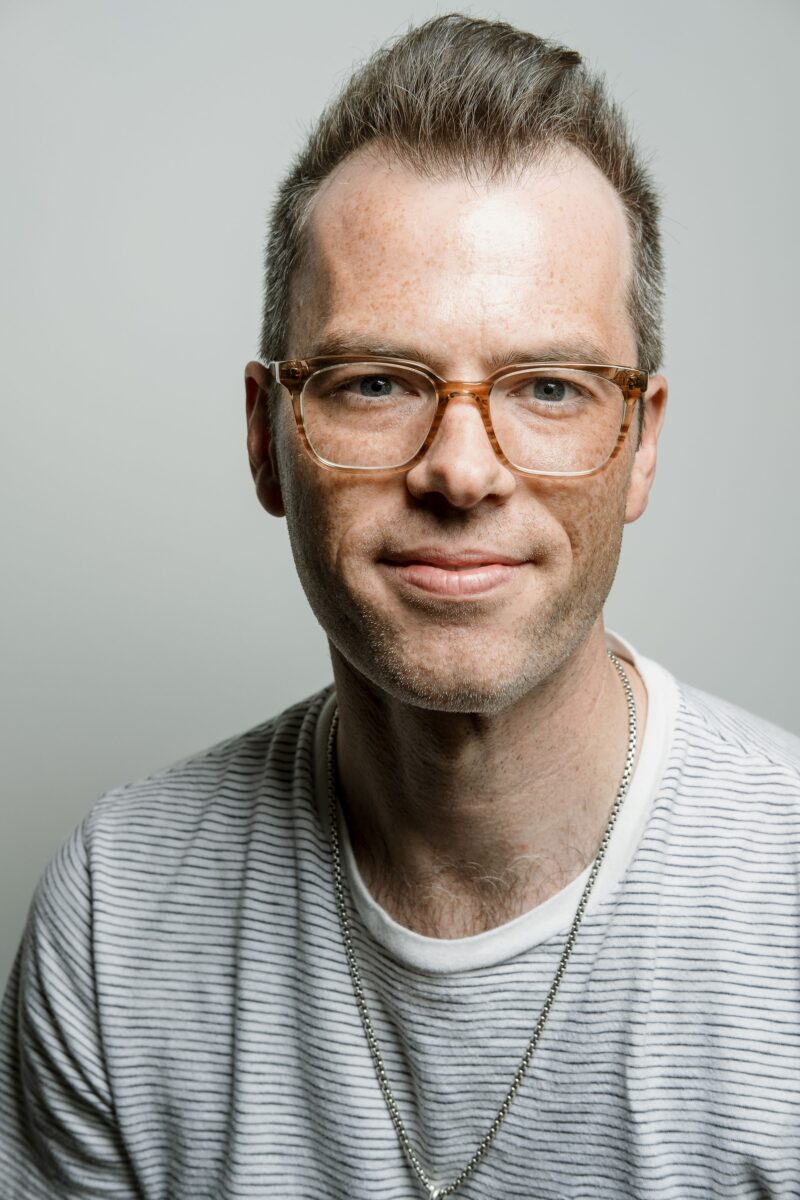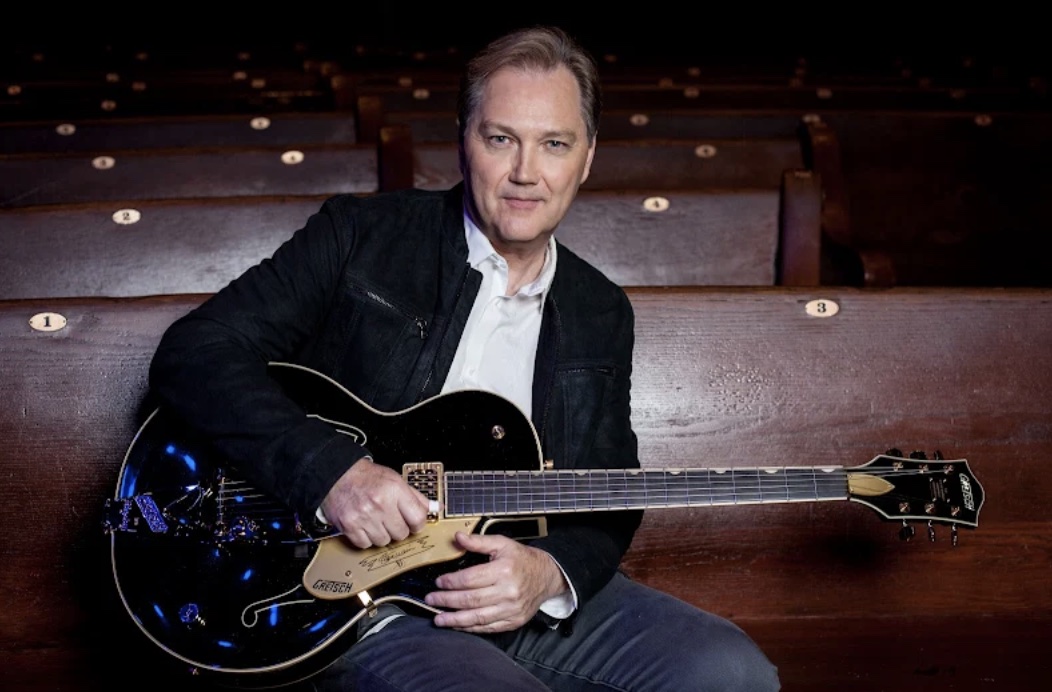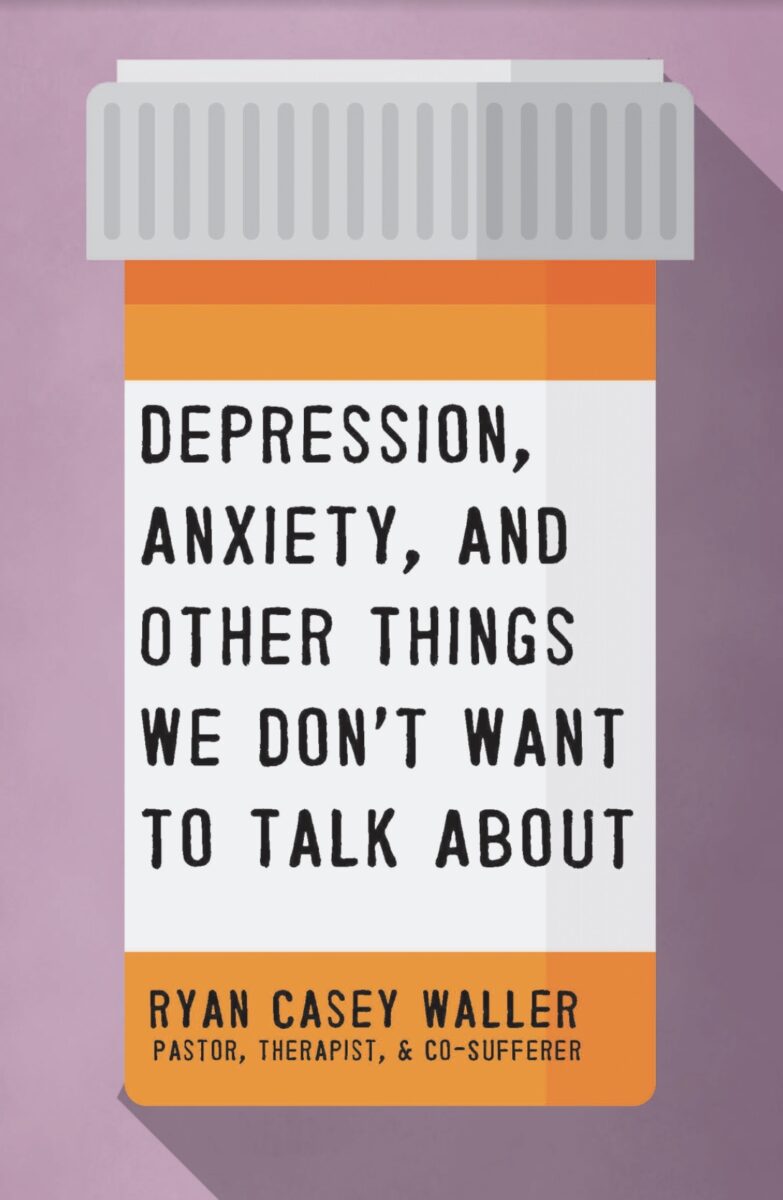God’s Power Overcomes the Darkness: Sinach & Ryan Casey Waller

Sinach: I have a testimony that You had made a way for me before, and I know that You are going to make a way for me, even in this darkness. I know that You are the answer to all the questions that I have in my heart.
God’s Power Overcomes the Darkness: Sinach & Ryan Casey Waller – Episode #282
Narrator: Welcome to the Jesus Calling Podcast. The news in the world today is often troubling and might send us into a tailspin of anxiousness and worry. When we hear stories of people hurting each other and conflicts around the world, we may wonder if there’s a hope in our future, or if we’re just descending into chaos. When things seem out of control, the Bible gives us assurance that God is still in charge.
Isaiah 41:10 says, “Do not be dismayed, for I am your God—I will strengthen you and help you. I will uphold you with my righteous right hand.” This week our guests both share about how they have come to know the greatness of God and how they’ve seen His power to overcome darkness in our world. We’ll hear from Sinach, an award-winning singer from Nigeria, and psychotherapist Ryan Casey Waller.
Let’s begin with Sinach’s story.
Sinach: I am Sinach, and I’m from Nigeria, from Africa. I have been singing and writing music for a little over thirty years. I’m a mother of a daughter, and I mentor a whole bunch of people back here in my country, and whoever will let me from all over the world. And I just love serving God.
“The Lord can actually use what I’m doing”

I’ve always liked music. As a child, I just grew up with sounds of music around me and I just fell in love with music. And so I grew up wanting to just be anywhere music is. Like in school, I joined the creative department and I just grew up dreaming of being an artist, even though I didn’t know how to be. I just dreamt always of being an actress and expressing myself in that way.
My father actually said to me, “You need to go read something”—because we didn’t know of any musician that was so successful at that time—“you need to get a degree in the university, then you can do whatever you want to do.” And so I went to school and read physics.
I was actually on my way to do some more work and try to get to some school and do some more work, and then I started serving in a local church, and I started serving in the choir. My pastor said to me, “Have you ever thought of music as a ministry?” But I wasn’t trained in ministry then, so I didn’t understand what it meant for music to be a ministry.
And so as I grew as a Christian being born again, I started understanding, Oh, wow, the Lord could actually use what I’m doing, and as I saw the number of people that were being impacted with my music, I just realized that, Oh, wow, this is more than just a hobby. It is more than just something that I sing when I want to sing. This is something that the Lord will use. And that’s how it became so huge. The joy of just seeing the expression on people’s faces as we minister the music, the joy when we travel and see them come to Christ, open up their hearts, you know, it’s so beautiful. I like every part of it because you have to embrace all the parts, because that is part of the process. That is part of the growth.
“As I grew as a Christian being born again, I started understanding, Oh, wow, the Lord could actually use what I’m doing, and as I saw the number of people that were being impacted with my music, I just realized that, Oh, wow, this is more than just a hobby. It is more than just something that I sing when I want to sing. This is something that the Lord will use. “ – Sinach
Music Brings Light in the Darkness
I traveled with my pastor to some place outside my country, and after the service, the young lady came, she said to me that she had been going through serious depression. She said she started playing my music over and over again as she slept, and she said one day she felt the depression leaving, just walking away from her. It was as if somebody walked away from her and she said, “That is what your music did to me”. She said, “I feel like I was on a journey and your music has been a big part of the journey of my life, and your music has helped deliver me from the depths of darkness that I was sinking in.”
I said to her, “It is the Word of God in my music that saved you, the presence of the Lord that you felt as you were singing. It was not particularly about the music, but the Spirit, the power of the name of Jesus behind the music.” And those are the kind of things that make me want to make godly music, want to make spiritual music, music full of the presence of God, and that He can reach out to people wherever they are and become a contact point which the spirit of the Lord can touch them in a big way.
“It was not particularly about the music, but the spirit, the power of the name of Jesus behind the music.” – Sinach
“Greatest Lord” is a song bringing hope to the people. In the world we’re living now, you have to know who you are. And you have to know that the name of Jesus is the only hope that we have at this time. People are running to different things, trying to find a solution. But the name of Jesus is the greatest name of all.
The name of Jesus is greater than depression, is greater than any sickness that has been named or will ever be named, and that we must have confidence in the name of Jesus and be able to trust Him for what He said He is.
“The name of Jesus is greater than depression, is greater than any sickness that has been named or will ever be named, and that we must have confidence in the name of Jesus and be able to trust Him for what He said He is.” – Sinach
God Holds the Future
I like connecting with Him in the nights where everywhere is quiet and I can have time to listen to messages and be able to connect with Him. I can pour my heart to Him and be able to sing songs with Him and just spend some time with Him, just Him and me. I believe that those times, continuous communication with the Lord, is continuous communication with the Holy Spirit. That’s what I know that it is. It is a fellowship. He has called us into fellowship and that’s what I know. So that’s how I connect.
Okay, so this is Jesus Calling, September 5th:
I AM YOUR BEST FRIEND, as well as your King. Walk hand in hand with Me through your life. Together we will face whatever each day brings: pleasures, hardships, adventures, disappointments. Nothing is wasted when it is shared with Me. I can bring beauty out of the ashes of lost dreams. I can glean Joy out of sorrow, Peace out of adversity. Only a Friend who is also the King of kings could accomplish this divine alchemy. There is no other like Me!
The friendship I offer you is practical and down-to-earth, yet it is saturated with heavenly Glory. Living in My Presence means living in two realms simultaneously: the visible word and unseen, eternal reality. I have equipped you to stay conscious of Me while walking along dusty, earthbound paths.
You know, when the Bible talks about the invisible, the unseen that makes the visible world. So the things that we do not see actually are the things that are real. And that’s where our faith is. Our faith, sometimes faith is the unseen—and sometimes the Lord will reveal to you many things that are going to happen even before you get there, and what you need to latch onto with is your faith. God holds the future, so we should not be afraid of the future.
Narrator: To learn more about Sinach and her music, please visit www.sinachmusic.com.
Stay tuned to Ryan Casey Waller’s story after a brief message.
Give the Gift of Prayer, with Jesus Listens
Christmas is the most wonderful time of the year, but it can also be a season that makes us feel overwhelmed, anxious, and stressed. The good news is that you can find peace and hope in Jesus at Christmas time. There’s a brand NEW 365-day devotional prayer book called Jesus Listens from Sarah Young, the author of Jesus Calling. With Jesus Listens, you can strengthen or renew your relationship with God through the continual conversation of prayer. Jesus Listens is perfect if you are busy with life’s demands but want to grow in your prayer life, looking for rest and hope from difficult times, or are not even sure how to pray. Jesus Listens makes a great gift to friends and loved ones who also may be struggling with finding peace in their days. By praying Scripture through this daily devotional prayer book, you’ll experience how intentional prayer connects you to God, changes your heart, and can even move mountains.
For more information on how to get the new 365-day devotional prayer book, Jesus Listens, visit JesusCalling.com/JesusListens.
Narrator: Our next guest is psychotherapist Ryan Casey Waller, who opens up about his personal struggles with mental health, and why he’s so passionate about paving the way for openness surrounding that conversation in the church, which he discusses in his book, Anxiety, Depression, and Other Things We Don’t Want to Talk About.

Ryan Casey Waller: My name is Ryan Casey Waller, and I’m a licensed psychotherapist in Dallas, Texas. I work here as a marriage and family therapist. So I work with a lot of couples and also do a lot of individual counseling. And prior to this, I was a lawyer, and I’m also an ordained Episcopal priest. And so I’ve done a few different things that I think actually help in the work that I do now. But it’s been a bit of a winding career and educational path to get to this place.
A Winding Road to a Calling
My faith was developed and nurtured through my childhood, first and foremost through my parents. Neither one of my parents grew up with any kind of strong, active faith, and they would both say they didn’t become Christians until after they were married. And when they did, they made that decision, right? Their faith was really real to them, choosing it as adults. And so it was important that we were brought up in the faith and we were, first at a Bible church and then a Baptist church. And I was one of those kids who didn’t dread church. I loved the church. I was the annoying kid in Sunday school who would not stop asking questions and made my Sunday school teacher explain it and then explain it again and then explain it again. And I was just really, really fascinated with it.
But I really felt the presence of God. It’s difficult for me to go back and find a moment in my life in which I didn’t know that God was real. I can’t remember a time when I didn’t believe in God. And so my parents were sensitive to that, that I was spiritually inclined and encouraged it and allowed me to seek answers. And they really developed and nurtured it in that way and had a huge impact on my worldview because I understood myself first and foremost as a child of God. That’s the lens through which I saw the rest of the world. I understood that first and foremost, no matter what I did, no matter what I said, no matter what I accomplished or how I failed, I knew that God had brought me into existence, out of love and made me for love. And that blessed me so I might have the opportunity to bless others.
“No matter what I did, no matter what I said, no matter what I accomplished or how I failed, I knew that God had brought me into existence, out of love and made me for love. And that blessed me so I might have the opportunity to bless others.” – Ryan Casey Waller
And I would go on and get older in my life and forget all of that and mess it up and have a great deal of trouble with self-esteem and understanding myself as one who could be loved. But ultimately, I think that even through all my trials and struggles, I can look back to that origin point of those early seeds that were planted of true faith. And I think that’s what brought me home. I knew, because they had told me early on, that Imago Dei had been planted in my heart just like in everyone’s hearts, that we’re truly made in the image of God, and I think having known that from a young age, even after years of maybe burying that, I was able to get back to that truth, primarily because that foundation had been laid.
I just never pictured myself working in the church. I always pictured myself, you know, doing something else but doing it with that Christian lens, like, no matter what I was doing, I could do it in a way that, you know, blessed other people and fostered the love of God in this world, but never specifically there. It wasn’t really until I got to college and studied philosophy seriously that I began to imagine that there could be a way in which I used words and ideas to think and to write. And I think I maybe imagined myself being some sort of academic who then did something with the church, but still never really imagined myself as a pastor. The pivotal moment I think was born was in my first year of law school. I realized that, my goodness, I did not want to be a lawyer for thirty years, but probably more due to pride than anything else, I wasn’t about to drop out of law school. So what I did was I began divinity school the second year of law school and just did them concurrently. And I thought, Well, if this is what God wants me to do, I will somehow find a way. And I took a long time. I ended up finishing law school and then practicing law for a few years and got to a point where I realized that I simply wasn’t joyful. And I think that I wasn’t living into the vocation that God had for me.
I made a decision to go back and finish my theological training, working part time as a lawyer. And when I finished, I took my first job at a college preparatory school, an Episcopal school, to teach religion. And it was working with teenagers, teaching religion, that I discovered a real passion for working with people and discovered that I didn’t want to be an academic. I wasn’t still sure if I would go all the way into the church or work in a school setting or whatever it might be. But I knew then and there that working with people around issues of their faith and issues of their psychology and their relationships was what I wanted to do with my life. And so traveling down that path further and further eventually led me to ordained ministry.
Admitting We Need Help—Even from the Pulpit
So when I was a pastor, I discovered that there was not only a great deal of stigma around issues of mental illness just in the culture, but specifically a really strong stigma within the church. And I, for one, kind of was one of those people. I have suffered from depression and anxiety for most of my life, but did not avail myself to any kind of resources for treatment. I was in my early thirties when I began to have some serious panic attacks, and at that point I finally went to see a therapist. And by the grace of God, working with that therapist and beginning to take medication, I experienced a tremendous amount of healing. And I became really passionate to advocating for Christians to try and understand mental health as health and not as some separate category. That meant that there was some kind of unconscious sin in their life or that there was a failing of faith or any of those types of things, but to really talk about this and to understand that suffering comes in all kinds of forms.
And for some of us, that suffering comes in the mind. And that does not mean that there’s something wrong with the way that we believe in God or that we don’t trust God enough. It simply means that that’s the form of suffering that our suffering has taken. And I believe that God has provided all kinds and all manner of healings for all sorts of different suffering and for mental health. We have been given clinicians and medications and all kinds of treatments to deal with these issues.
The longer I worked in the church and the more I saw the resistance to this and the more I understood how much healing that I had experienced, I decided to go and become a mental health professional myself because I thought, Well, there are often times the need for a bridge between these two communities that can be suspicious of one another, both from the psychological community and from the faith community of one another. And I was discovering that we had so much we could learn from one another and benefit from one another. And so I went and became a mental health professional myself.
“By the grace of God, working with that therapist and beginning to take medication, I experienced a tremendous amount of healing. And I became really passionate for advocating for Christians to try and understand mental health as health and not as some separate category.” – Ryan Casey Waller
But as I was doing that near the end of my time in the church, I was so busy trying to get these things done that I myself began to suffer some deterioration in my own mental health because I wasn’t taking care of myself. I was telling people that this is what they needed to do, that this was okay. And yet I was running myself ragged.
A couple of years back, I went through another serious depression. And this time, instead of seeking out the help that I needed, I just masked it and I just kept going on. I kept earning the degree. I kept working full-time in the church. I wrote my first book. I was married with one child and a second child came along and I just kept going. And instead of seeking the treatment that I needed, I began to mask my pain by abusing alcohol and was drinking suddenly much more than I had ever done so in the past.
Inevitably what happened was I showed up one evening to do a service under the influence of alcohol, and people that loved me and cared for me kind of managed to get a hold of me about halfway through and another priest took my place. It was one of the most difficult nights and the days of my life, but I can see it now as one of the best moments because it was that moment of deep embarrassment and shame that allowed me to see that I needed to push pause on everything. And then I need to return to the basics and I need to go and get some serious treatment and to take time to understand that my own mental health had gotten in a bad place and I had to step back. And so that’s what I did. And I went away and I got good treatment and I returned. And ultimately that led to my decision to resign from the church and to continue this path forward into being a mental health professional myself.
“It was that moment of deep embarrassment and shame that allowed me to see that I needed to push pause on everything, that I needed to return to the basics, get some serious treatment, and to take time to understand that my own mental health had gotten in a bad place and I had to step back.” – Ryan Casey Waller
Those of us who struggle with depression, anxiety or any other kind of mental health conditions, there are nary two words that are more powerful than me when we can look into one another’s eyes and say, “I understand the pain, I’ve been there. Me too.” And I think in that I hope that I can foster a conversation around mental health and that Christians can feel more liberated to speak up and raise their hand and say, “I need help,” and just understand that there are all kinds of help that they can go get, that there’s no shame and there’s no weakness in asking for help. It’s only strength.
The very first time I ever said anything about mental health, I had a throwaway line in a sermon where I just mentioned offhand that I had battled anxiety for most of my life. And then I went on to make whatever point I was trying to make. But I was flabbergasted the next day by the number of emails that I got from people who said, “Thank you. Thank you for saying that. Thank you for putting those words out there from the pulpit, I’ve never heard a pastor say something like that.” I was just shocked and I thought, My gosh, this is something that’s really not talked about.
I really have to look back to that moment to say that there was the congregation teaching me what needed to be done. I experienced no shame, no sort of judgment for that. There was gratitude, and what it showed me was that there was a desperate need, not just for these things to be talked about, but for Christian leaders to talk about it so other people can understand. Right? Because if they look to their pastors and they say, “Well, if he or she struggles with this,” then okay, that normalizes the struggle. So, you know, whether it’s true or not, if they’re perceiving their pastor as a person who takes their faith seriously and is journeying with God, and they, too, have to deal with these issues, right? Then that means it’s totally okay that they are too. It’s not something that they’ve done or that they haven’t developed their faith and that this is just part of reality.
If the church is going to be a place of true healing, then it must be a place where every kind of pain can be brought into and entrusted. Jesus never promises to take our pain away, but what is promised is that He’ll be there with us. And if we as the church are going to carry that out, we have to be a people that will embrace all kinds of pain and be present with people in all kinds of pain and be willing and knowledgeable enough to be able to point them where they need to go for healing in times of pain. Until the church cannot suppress issues of mental health, we need to do just the opposite. We need to lean into these and not only embrace it, but educate ourselves so we know how to refer people to the professional services that they need.
“If the church is going to be a place of true healing, then it must be a place where every kind of pain can be brought into and entrusted. Jesus never promises to take our pain away, but what is promised is that He’ll be there with us.” – Ryan Casey Waller
God Is Near, Even in Our Anxiety and Depression
As anyone who struggles with depression, anxiety, like myself understands that when depression and anxiety hit, it becomes very difficult. It can become very difficult to do even the smallest of tasks that you would normally do to take care of yourself: brushing your teeth, getting out of bed, calling a friend, returning an email. All of this can feel like climbing Mount Everest. And what I can tell you is when that happens, praying and feeling close to God is one of the last things on Earth you want to do or feel capable of doing. In those moments, you feel deeply isolated and alone, even to yourself. You feel as though your own mind has betrayed you. And from that place, it becomes very difficult, very difficult to feel like you’re the beloved child of God. And so we cannot ignore these issues. And this is why we must take them so seriously, because to repress our pains, to repress our desires, to repress what’s happening in our mind ultimately, I think disallows us from being open with God. And so I think that the abundant life that Jesus offers, the life that He wants us to enjoy, is one in which we are entering into the healthiest versions of ourselves as possible.
“I think that the abundant life that Jesus offers, the life that He wants us to enjoy, is one in which we are entering into the healthiest versions of ourselves as possible.” – Ryan Casey Waller
Jesus Calling, January 14th:
You are fully known. I know absolutely everything about you, and I love you with perfect, unfailing Love. Many people are searching for greater self-understanding and self-acceptance. Underlying their search is a desire to find someone who truly understands them and accepts them as they are. I am the Someone who can fully satisfy this deep-seated longing. It is in your relationship with Me that you discover who you really are.
I encourage you to be real with Me—dropping all pretenses and opening yourself fully to Me. As you draw near, utter these inspired words: “Search me, O God, and know my heart; test me and know my anxious thoughts.” In the Light of My holy gaze, you will see things you need to change. But don’t despair; I will help you. Continue resting in My Presence, receiving My Love that flows freely into you through your openness to Me. Take time to let this powerful Love soak in deeply—filling up your empty spaces and overflowing into joyous worship. Rejoice greatly, for you are fully known and forever loved!
If there’s somebody who’s listening to this and they’re struggling today, what I want them to know is that their tomorrow can be very different than today. And that when I was at the lowest point in my own struggles with mental health, my mother, who also battled depression, she looked at me and she said, “ I know that the way you feel today is so bad that you’re convinced that you’re going to feel this way forever. But I’m here to tell you that you won’t. But even if you can’t believe that for yourself today, let me believe it for you.”
And all I can say to you if you’re struggling today, is that I chose to let my mom believe that for me. And I’m so glad that I did, because she was right. I was so down that I couldn’t envision a future for myself. So I allowed someone who loved me to envision that future. And it saw me through. God has a future for you, there are people who love you, and if you’re in pain today, please tell them. Don’t be ashamed. You’ll be met with love and you’ll be guided toward healing.
“God has a future for you. There are people who love you. And if you’re in pain today, please tell them. Don’t be ashamed. You’ll be met with love and you’ll be guided toward healing.” – Ryan Casey Waller
Narrator: To learn more about Ryan Casey Waller, please visit www.ryancaseywaller.com, and be sure to check out his book, Depression, Anxiety, and Other Things We Don’t Want To Talk About, at your favorite retailer.
If you’d like to hear more stories that can help us remember that God is in control, check out our interview with Levi Lusko.

Narrator: Next time on the Jesus Calling Podcast, we’ll hear from country singer/songwriter Steve Wariner, who shares how his faith has influenced his songwriting.
Steve Wariner: I’m a very faith-driven person. It’s not something a lot of people may not know about me, but it’s something that is a part of my life and it shows up in my music a lot. I have people that pick up on that sometimes, and they’ll ask me about it, not knowing anything about me or not knowing me at all. And they can sense that I’m that type of faith, you know, and in some of my music, and I think it must show somewhat.


